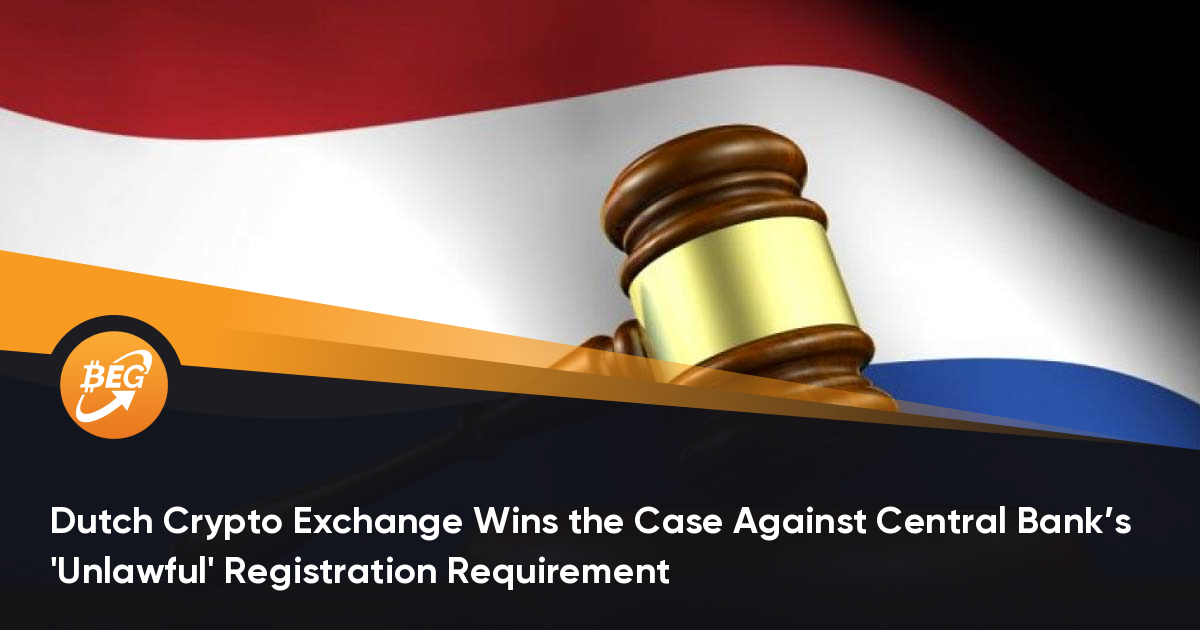Dutch Crypto Exchange Wins the Case Against Central Bank’s ‘Unlawful’ Registration Requirement
Bitonic has won its case against the Dutch Central Bank, which means the country’s cryptocurrency exchanges no longer need to verify their users’ wallet addresses, stated the crypto exchange platform.
The company filed a lawsuit in a court in Rotterdam against the De Nederlandsche Bank in March regarding the apex bank’s wallet verification requirement.
But now, the regulator has formally acknowledged that its requirement was unlawful and should have never been called for the purpose of crypto exchange platform’ registration. The central bank said,
“After reconsideration, DNB comes to the conclusion that this interpretation of Article 2, second paragraph, RtSw, given by DNB, does not do enough justice to the discretion that an institution has to implement this standard in a risk-oriented manner. DNB has therefore incorrectly set the registration requirement as a condition for the registration of Bitonic.”
This statement came after the court ordered that the Dutch supervisor should motivate its registration decision better.
“DNB declares the objection well-founded and revokes its primary decision of 17 November 2020, insofar as this relates to the interpretation of Article 2, second paragraph, of the RtSw with the registration requirement, advocated by DNB.”
This means that Dutch-based crypto exchanges no longer need to implement wallet verification measures involving the screenshot of a user’s wallet and their transactions.
Bitonic said these unlawful and onerous procedures have riddled the entire Dutch crypto sector with high costs and administrative burdens and harmed innovation and the business climate in the Netherlands.
“This is in stark contrast to the claim that the Netherlands stimulates an innovative business climate.”
